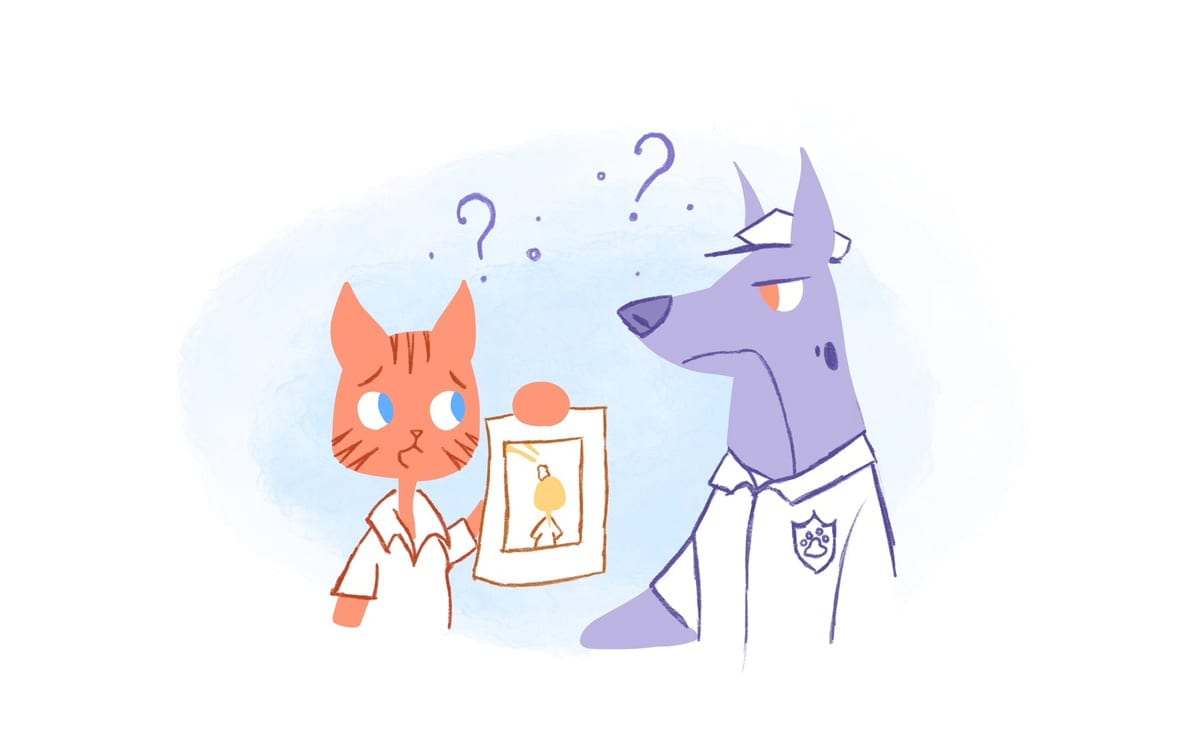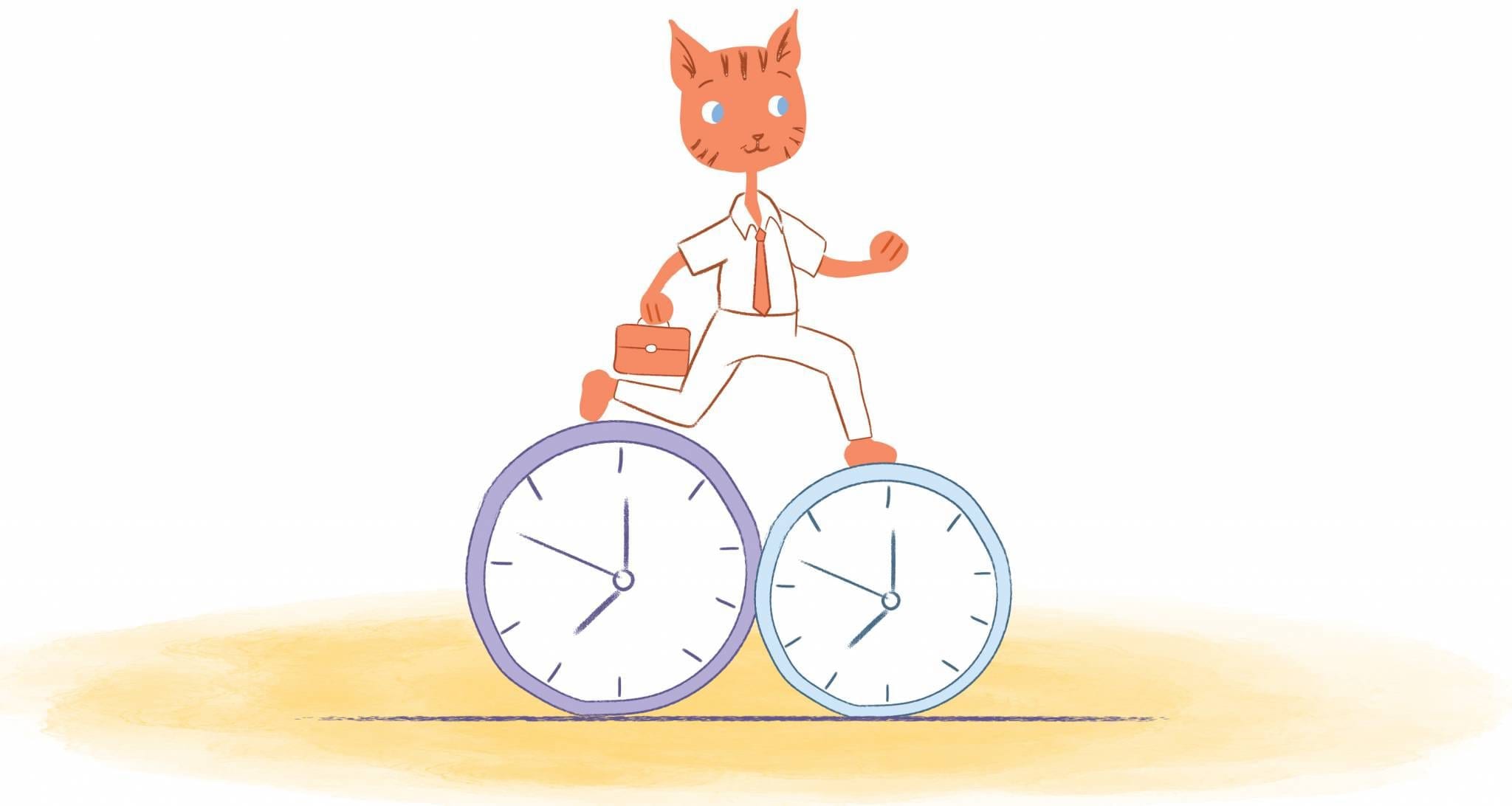

Even if you haven’t openly expressed it, everyone wants to be more productive. When you’re productive, you have a purpose and the ability to explore new opportunities. Productivity can improve the quality of your life by strengthening your relationships and encouraging you to work smarter, not harder. Here are 15 things you need to stop doing to be more productive.
In short, productivity is the key to having a happy, healthy, and prosperous life. When you want to achieve a goal — it’s not always what you should start doing — sometimes it’s about what you need to stop doing. Here are 15 things you need to stop doing to be more productive.
1. Ignoring your circadian and ultradian rhythms.
I’m a morning person. I always have been, but that may not mean that I’m any more productive than a night owl. It could be disastrous to force a night owl to wake-up incredibly early. The reason? We all have our own natural circadian rhythm.
Circadian rhythms are just a 24-hour internal clock that controls sleeping and wakefulness. These rhythms are also responsible for when we’re most alert, hungry, and our moods. Instead of fighting against these natural rhythms — sync your biological clock to your schedule. Establish your daily routines and habits to the rhythm you will stick with, like when to wake-up, go to bed, eat, exercise, and work.
Additionally, there are also ultradian rhythms, which are biological cycles shorter than 24-hours. For most of us, that means we experience an energy dip after doing an activity for roughly 90-120 minutes. Instead of bulldogging your way through this lull, take a break. You could go for a walk outside, catch some z’s, or sit there and reflect. After around 20 minutes, you can return to work with more creativity, focus, and energy.
2. Staying indoors.
One of my favorite times of the day is after lunch. I leave my phone in the office and take my dog for a walk. Not only am I unplugging for a 30-minutes or so, but it also gets me, and my dog, outside. Start to notice that going outside is vital to your productivity. Various studies have found that nature can increase concentration, improve short-term memory, and spark creativity.
Going outside can also increase the positivity in your brain. If possible, when you go outside during your breaks or plan for more outdoor meetings (the walk and talk meetings). If you can even take a moment to stare at a screensaver of nature to do the trick.
3. Always saying, “yes.”
I’m not suggesting that you say “no” to everything — you’d miss out on new and exciting opportunities. At the same time, you don’t need to say “yes” all the time either. There has to be a balance. The balance is most important to consider when someone asks for your time.
Instead of instantly accepting or declining, consult your calendar. You don’t have time to chat with them today, but you do tomorrow. You can’t attend that meeting because you already committed to another event. The main takeaway here is that you should only say “yes” when it doesn’t interfere with your priorities. If it does, then politely turn down the request.
4. Doing the most easy thing first.
There’s a theory that by completing an easy task first, you’ll become motivated to tackle a more challenging task. I can buy that — to an extent. Whenever you accomplish something, you feel better, thanks to the release of endorphins. You want to keep the good times rolling, so you work towards crossing off another item for your list.
That suggestion is all well and good when starting your day with a quick chore, like making your bed. But doing the most straightforward task is not always the best when it comes to your work.
Remember those circadian and ultradian rhythms I discussed? They determine when you have the most energy and focus. As such, you wouldn’t want to spend that time on more leisurely tasks. Instead, you should be using that on your most challenging or most crucial activity for the day. Save those less taxing jobs for when your energy drops.
5. Trying to do everything at once.
You’ve heard the don’t multitask issues a million times before, and that entrepreneurs wear a million different hats. Ask, what separates the most successful and productive entrepreneurs from the rest of the pack? They don’t attempt to do everything all at once.
It’s like an athlete or celebrity who starts their own business venture. Yes. I know that they have financial means now. But, they wouldn’t have gotten that far if they didn’t master a specific set of skills first. The athlete, celebrity, and entrepreneur and founders made it (with luck) and because they did the work most important to them first.
Take one step at a time, and perfect a specific skill and then start developing new ones that can enhance the other skills you have accomplished. Focus on your top priorities before moving on to the next item on your to-do-list.
6. Making excuses.
When I was in high school, I worked at a small, local grocery store. One day the power went out. I assumed that the store would close. Nope — the owner kept it open. We couldn’t accept credit cards, but we could still take cash. Most impressively, the owner would hold produce in his hands and estimate how much it weighed.
The moral of this story is that productive people don’t make excuses. They’re not only responsible for their actions, but they also forge ahead and use their resourcefulness to get still things done.
7. Being like Pavlov’s dogs.
We are conditioned to stop whatever we’re doing to look at our phones every time a notification goes off. It may seem harmless. But, it takes around 25 minutes to get back on track after getting distracted.
No longer holding on to this ugly habit is no easy habit to break. The best course of action is to either turn your phone off or put it in airplane mode. Ditch the phone when you need to concentrate. There are also apps like StayFocusd, RescueTime, or SelfControl that will block distracting websites and apps for a certain amount of time.
8. Letting molehills become mountains.
It’s not always worth your time and energy to sweat the small stuff — especially when it’s something out of your control. For example, I had a friend who was furious about what happened with NFL wide receiver Antonio Brown. As soon as Brown signed with the Patriots, my friend spent the rest of the weekend complaining about the situation on social media. Then this friend had to spread the misery in a group text with friends that included me.
At the same time, you don’t want to completely neglect the small stuff that you do have control over. If you carelessly ignore some issues you should take care of, those things will become something much bigger. It’s like that leaky faucet — you let it slide and now a pipe bursts.
Let’s say that you work with a client — and they’re peculiar — but you need the income. Maybe they become demanding and want to micromanage everything you do for them, and you become incredibly irritated and stressed. As a result, you may get worked up and lose focus on your other clients. In this case, it’s best to let the client go so that you aren’t allowing your irritations to interfere with your other clients’ work.
9. Micromanaging.
You want to, and it certainly should be, hands-on with your business. But, that doesn’t mean that you should continually be looking over your employee’s shoulders and redoing their work.
You hired them for a reason. Let work your employees work their own kind of magic. Granting autonomy will boost their productivity, and you can start devoting more of your time to the things that matter.
10. Just “winging it.”
Part of being an entrepreneur is being able to think on your feet. An entrepreneur also has to be adaptable to sudden changes. That doesn’t mean you should wake-up every day without a plan. If you decide you want to put together that shelf you picked-up at Ikea, you need instructions and the right tools to put the shelf together.
As opposed to “winging it,” have a plan for you what you want to accomplish tomorrow or next week. Set a course for where you want to be next month or year. When you calendar a plan, you know precisely what has to be done and the actions needed to take you there. You’ll also have time to prepare and reduce the number of decisions you have to make — which saves your mental energy.
11. Waiting for your muse.
There are times when inspiration and motivation will strike you suddenly, like when you’re in the shower or taking a walk. But, when it’s time to roll-up your sleeves and get the work done, get it done — even though you may not feel like working. You have to know what you “feel” like doing doesn’t matter. When it’s time to do the work — work — or you’ll end up wasting a good part of your day waiting for your muse.
If you’re procrastinating, it’s up to you to overcome it. Sometimes overcoming procrastination can be as easy as a little positive self-talk or implementing the five-minute rule. Other times it may involve something a little more in-depth like mindfulness training.
12. Chasing perfection.
You will never be perfect. That sounds harsh — but it’s the truth. Perfection doesn’t exist. It’s something that you conjured up in your mind.
“We found that perfectionism trips up professors on the way to research productivity. The more perfectionistic the professor, the less productive they are,” Dr. Simon Sherry, a psychology professor at Dalhousie University who conducted a study on perfectionism and productivity, told University Affairs. Perfectionists devote more time to tasks, focus too much on smaller details, and procrastinate because they’re waiting for the perfect moment.
13. Spending too much time in pointless meetings.
Meetings are perhaps the most significant waste of time for both employees and employers. Don’t accept every meeting invite, be more selective. Only receive invites to meetings that have a purpose. You may want to scrap some meetings altogether and look for alternatives like email, online chats, or virtual meetings.
14. Working in a poor environment.
Your environment has a significant impact on your productivity. Considering this, you need to optimize your workspace so that you’ll become more productive. For example, if background noise is an issue, then invest in noise-canceling headphones or work in a quiet place.
Other ways to improve your workspace is to keep it clean and organized, have the proper lighting, and invest in ergonomic furniture. You should also set the thermostat so that you’re not too cold or warm. Take the time and energy to make your workspace something that will inspire you to keep going.
A few years ago, we moved into a new office space. One day I was looking around, and a friend visiting the office that day noticed my gaze and said, “Yeah, you need some ‘blankety-blank’ plants — and open the blinds.” Enough said. We left and came back with eight large plants and opened the blinds. I, along with employees and friends, added some tremendous inspirational wall art. Fixed — and the whole office environment was charged with excitement.
15. Wasting time on repetitive tasks.
Finally, stop doing those repetitive tasks. These include, but not limited to, responding to email, paying bills, synching your to-do list with your calendar, and cross-posting on social media. The better option is to automate these activities so that you can allocate more time on what’s most important.











John Hall
John Hall is the co-founder of Calendar a scheduling and time management app. He’s also a keynote speaker that you can book at http://www.johnhallspeaking.com.